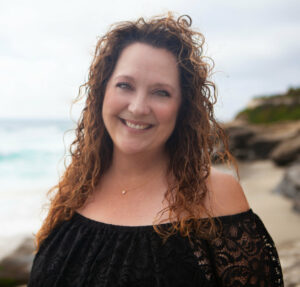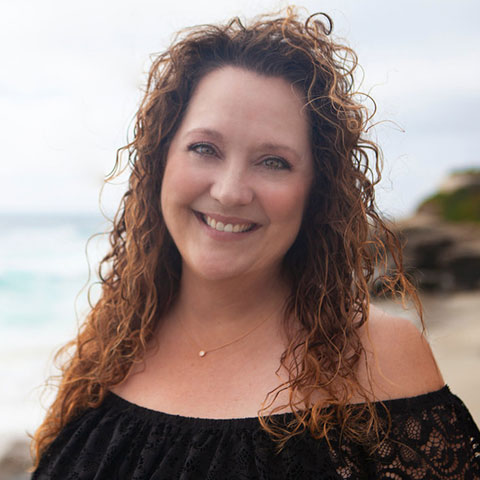How Can Grandparents Be Supportive?
New parents are always asking how they can explain what they have learned in birth class to the grandparents of this new baby. Hopefully this video will help! For new parents, the advice given to them on a daily basis is ENDLESS! It seems like everyone can come up with better ways to give birth this baby, parent this new baby and even feed this new baby. And while all the advice is appreciated – even myself, as the birth educator, may give advice that these new parents will roll their eyes at. And YAY for them! This is THEIR baby, THEIR new family and THEY make all the choices. The scientific evidence backing birth as a “natural process” has changed a lot over the last 75 years. A good birth class, will give these new parents the latest, evidence based information on birth, babies and what to do with babies once you have them at home. Sometimes the traditions that we(myself included), used with our kids, have been improved or been dropped altogether. (ie: Dr. Spock sleep and feeding schedules, rice cereal to help babies sleep through the night, tummy sleeping etc.) While the evidence is slowly moving into our hospital systems, the science is still behind these ideas and the can work beautifully when we don’t mettle as much in this natural process. Looking at what these new parents are planning with a more modern and evidenced based approach, will open up the conversation as to why they are doing it this way. I cannot be take it personally when my daughter uses better information to raise her baby. I did the best I could with what I had and I am grateful for the science that will allow my grand-babies to be more healthy and happy. And hey, if it doesn’t work – I’ll be the first person she comes to for answers!
Video Transcript:
As an educator, one of the questions I get asked a lot every year in every class is, “How do we have the conversation with our moms, dads, “and grandparents that we might not want them “in the birth room and we might want two hours alone “with the baby as soon as the baby comes out?” So today, I’m here to kind of open up that conversation so that we can find out the pros and cons of both things. Whether this is your first grandbaby or your 15th, it’s still exciting ’cause you’re having a baby and your babies are having babies. And I know ’cause I have a kid that could be having a baby any day, let’s hope that’s another 10 years away, but it’s exciting and we all wanna be there and we all want to be a part of that day. However, what’s happened in our culture is that norm that everybody’s there. That black box that we see all the time, TV, telling us that it’s a family affair and we should all be involved is actually kind of counterproductive to what we’re going for. I want us to kinda go back to what is this baby experiencing and how are we prolonging this birth possibly for this baby? Keeping parents in a safe cocoon not only enhances their bonding hormones with this baby when the baby comes out but also keeps things mellow for the baby. So when we’re thinking about this birth, let’s just think about the baby and not our feelings for a second and kind of not even the parents’ feelings. Let’s think about the baby. Looking at this birth from another perspective as well is your kids, your babies, are trying to establish themselves as a new family, coming together, bringing in this new life and becoming their own family. But yet, they still are under your shadow ’cause you’re their parents, right, and you’re their grandparents. So they’re walking that line. How do I keep everybody happy but really make this a family experience because this is the only shot we have with this baby? So the cultural narrative is that we should all be there, it should be a very family-oriented event, but it’s also not a spectator sport. Birth is sacred, it’s private, and women as mammals perform better when they’re unobserved without a lotta people to entertain. That slows labor down, adds more hours, and puts more stress on the mom, which increases her catecholamines, which are the stress hormones, which is opposite what we’re trying to do. Sometimes we feel like we’re owed. We’re the parents, we paid for this big shower or whatever, and we kind of push ourselves to, well, of course we’re going to be there, instead of asking, “Why don’t you want us there?” and accepting that as an answer. I totally get it because it was offensive to my mom when I said, “I just don’t want you there. “I love you, I want you to be there after when I call you, “but I don’t want you there for the birth.” I really did need that private time, and while I knew it was gonna be offensive, I had to protect that little bit of family that I had at that moment. How do we support a birth that we’re really not onboard with? Maybe they’re doing natural, maybe they’re birthing outta the hospital birth center, maybe they decided to do home birth, which we think is ooh super hippy and really scary and also very dangerous for our grandbaby? The best way we can support is to learn about what they’re doing, learn about what they’re learning in their birth class. Are they in a Bradley class? What is that method? We did Lamaze maybe or maybe we took no classes. Or maybe we had a horrific birth experience, and we just think it’s all dangerous and why aren’t they signing up for that caesarean? Understanding what they’re learning is gonna give you their perspective of why they’re choosing what they’re choosing for their birth. Reading evidence-based articles where the science has now caught up to actual birth, especially natural birth, where it might not be coming that way from a hospital. Science will slowly catch up to the hospital. It hasn’t gotten there all the way yet, but we’re on that train. So understanding what they’re learning is gonna help you be able to support in a better way. Another thing that I want parents and grandparents to look at is your opinion about this type of birth or birth in general, fear-based, on your own experiences, what’s happened with other kids or neighbors or grandparent friends or whatever. What’s your opinion based in? If your kids are going into birth less than fearful with wide eyes and excitement, that’s okay. They may have science and evidence-based birth practices to back up what they’re going for. Because the truth is, beautiful birth happens all the time and it can come medicated and unmedicated, and it can also be a gentle caesarean, which gives baby more time to bond with parents, et cetera. But they’re quiet and calm methods and procedures to having births like that and unobserved is number one. It’s important to remember that every birth is different and your grandbaby’s birth story hasn’t even been written yet. It’s all in the planning stages. And whether or not they agree or disagree with your opinion, your grandbaby has one shot at this birth, and those parents are making that decision. Can we shift as adults and grandparents and parents into a role of support instead of fear? One thing I would ask all of us as parents and grandparents is to filter our advice to this new mother and birth partner. The last thing we want to do is instill fear and make them feel like we don’t support them. The pregnant brain picks up all that negative energy, which gives lots of fear and stress to the baby. And that’s what we’re trying to prevent. So even if we don’t agree with it, is there a way that we can bite our tongue and listen more than we speak so that we can take that information in and kinda filter it before our first knee-jerk reaction comes out of our mouth? It’s very important to not cause stress for this baby and for the baby to feel like everything’s safe on the outside. The next thing we need to do is literally support mom no matter what she wants. Her needs are way above ours because that’s what transmits safety to the baby. So basically, no matter what method of childbirth education they are getting in or out of the hospital, it kind of has five main elements that we all kinda teach from, silence, safety, privacy, warmth, and darkness. These five basic things ensure a very beautiful mammalian birth. So whether mom has earplugs in her ears blocking out the sound, that can be interpreted as silence. Low tones in the room, not a lot of questions keep her in her birth brain, which is her lizard brain, her monkey brain you’ve heard of that helps her get that baby out. Keeping her safe and warm in privacy so that she’s not observed and darkness is what keeps those hormones going in her labor. So we’re gonna start comparing labor to sex. How well do we have sex and orgasm when everybody in the room is watching? We are in a very vulnerable state during sex, just as we are in birth, and the more observers we have, the more inhibited we are. Mom does not feel safe and if she feels like there’s pressure to perform, it adds hours onto her labor. And that’s with medication or without. It’s so important that she feels safe and it needs to be private and it needs to be quiet and hushed tones. It can be just a beautiful experience if we ensure those five things. All of this seems like a lot to ask when you just wanna be a part of it and be in the mix of it and not miss a thing and moment, a taste, a touch, all of that, but think of it as setting up a future relationship with this grandbaby. If the parents feel supported and respected by you and their decisions feel respected, you’re gonna have a better relationship with this grandbaby. And that’s the whole point. You know them. You want to meet this new little baby. I totally get it, but supporting the parents is going to ensure that that works better. Another one of the fears of these new parents is disappointing or hurting your feelings. And if you can be that safe space to just say, “We trust you, we love you, we’re here if you need us,” that opens that door for we can have communication and talk and they’re okay with my decision. Even if it’s not the right decision in your eyes or even if it goes sideways and you really wanna say, “I told you so,” don’t say, “I told you so.” They’re already saying that in their head. All of this can be beautiful and bonding and yummy for the baby if we all take our feelings out of it, literally step back. And I know when my daughters ask, “Are you gonna be at my birth?” and I’ve said, “No,” even though I would totally like to be, I know that it’s gonna inhibit her and she’s gonna feel watched and she’s gonna feel judged, especially from my education background. It’s really about the baby. How are we supporting the baby? The best way is to support the parents. Lots of information in this video and lots of things to consider. I put it all in a blog post, the link is down below, and I also put a link to sarahbuckley.com. If you go to her website and download her e-book “Ecstatic Birth,” it’s gonna explain to you all the science behind what we’re talking about with the hormones and pheromones and the bonding that goes on between mother and baby and partner during labor and immediately after birth. It’s gonna help you understand kinda what we’re talking about and have the discussion that you might not wanna talk about, but it’s the elephant in the room and we need to talk about.




